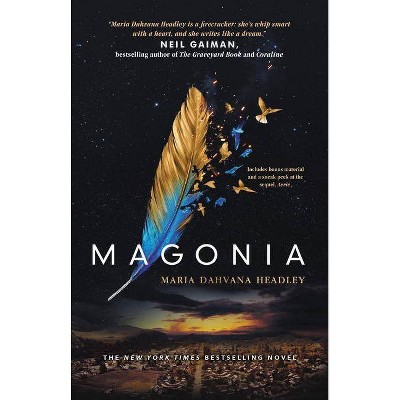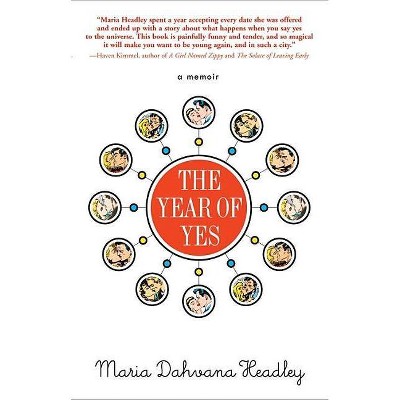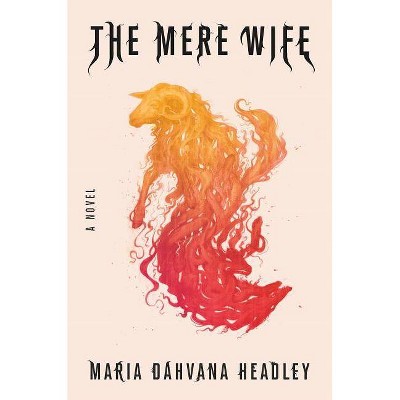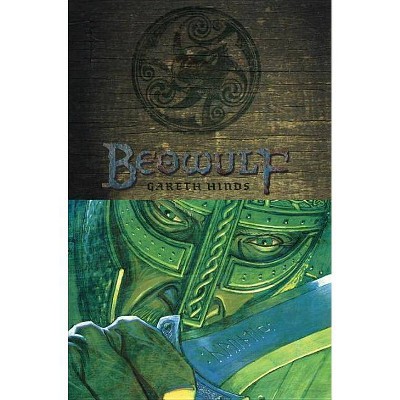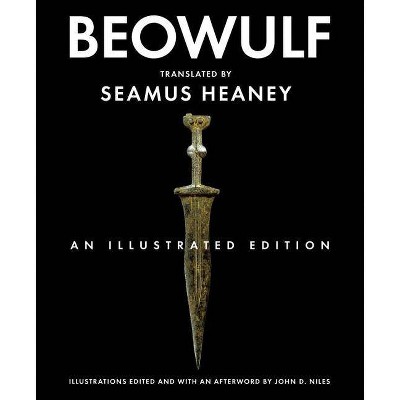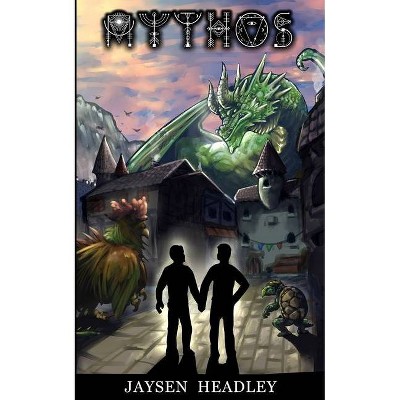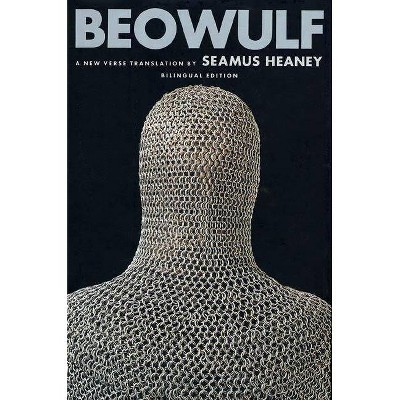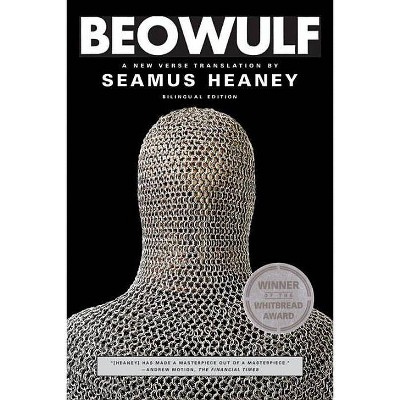Beowulf: A New Translation - by Maria Dahvana Headley (Paperback)
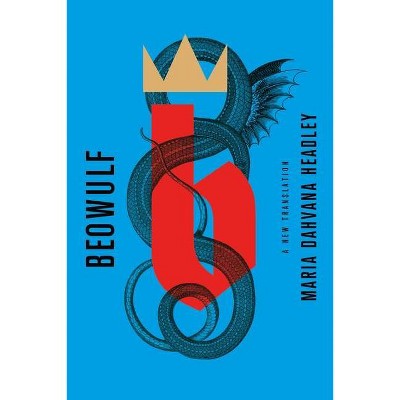
Similar Products
Products of same category from the store
AllProduct info
<p/><br></br><p><b> About the Book </b></p></br></br><b>A new, feminist translation of <i>Beowulf</i> by the author of the much-buzzed-about novel <i>The Mere Wife</i></b><p/><br></br><p><b> Book Synopsis </b></p></br></br><p><b>Named one of the Best Poetry Books of 2021 by <i>The Guardian</i></b><br><b><br>Longlisted for the 2021 National Translation Award in Poetry. Picked for Kirkus Reviews' Best Fiction in Translation of 2020. Named a Book of the Year by NPR, Vox, and <i>The New Statesman</i>. Picked for Loyalty Books' Holiday List. </b> <p/><b>A new, feminist translation of <i>Beowulf</i> by the author of the much-buzzed-about novel <i>The Mere Wife</i></b> <p/><b></b><b>Brash and belligerent, lunatic and invigorating, with passages of sublime poetry punctuated by obscenities and social-media shorthand. --</b><b>Ruth Franklin, <i>The New Yorker</i></b> <p/><b>The author of the crazy-cool Beowulf-inspired novel The Mere Wife tackles the Old English epic poem with a fierce new feminist translation that radically recontextualizes the tale. --</b><b>Barbara VanDenburgh, <i>USA Today</i></b> <p/>Nearly twenty years after Seamus Heaney's translation of <i>Beowulf</i>--and fifty years after the translation that continues to torment high-school students around the world--there is a radical new verse translation of the epic poem by Maria Dahvana Headley, which brings to light elements that have never before been translated into English, recontextualizing the binary narrative of monsters and heroes into a tale in which the two categories often entwine, justice is rarely served, and dragons live among us. <p/>A man seeks to prove himself as a hero. A monster seeks silence in his territory. A warrior seeks to avenge her murdered son. A dragon ends it all. The familiar elements of the epic poem are seen with a novelist's eye toward gender, genre, and history--<i>Beowulf </i>has always been a tale of entitlement and encroachment, powerful men seeking to become more powerful, and one woman seeking justice for her child, but this version brings new context to an old story. While crafting her contemporary adaptation of <i>Beowulf</i>, Headley unearthed significant shifts lost over centuries of translation.</p><p/><br></br><p><b> Review Quotes </b></p></br></br><br><p>Maria Dahvana Headley's decision to make Beoulf a bro puts his macho bluster in a whole new light. --<b>Andrea Kannapell, <i>The New York Times</i></b> <p/><i>Beowulf</i> is an ancient tale of men battling monsters, but Headley has made it wholly modern, with language as piercing and relevant as Kendrick Lamar's Pulitzer Prize-winning album 'DAMN.' With scintillating inversions and her use of <i>au courant</i> idiom--the poem begins with the word 'Bro!' and Queen Wealhtheow is 'hashtag: blessed'--Headley asks one to consider not only present conflicts in light of those of the past, but also the line between human and inhuman, power and powerlessness, and the very nature of moral transformation, the 'suspicion that at any moment a person might shift from hero into howling wretch.' --<b>Danielle Trussoni, <i>The New York Times Book Review</i></b> <p/>[Headley's] narrator's tone is light and suspenseful, resembling nothing so much as a man telling a long but compelling story in a bar. That comparison isn't accidental . . . [Headley's] <i>Beowulf </i>is a tragicomic epic about the things men do to impress one another. It's as fierce an examination of masculine weakness as <i>The Mere Wife </i>was of feminine strength.--<b>Jo Livingstone, <i>The Poetry Foundation</i><br></b><br>[<i>The Mere Wife</i>] includes some tantalizing snippets of <i>Beowulf</i> as translated by Headley. Now we have the full version, and it is electrifying . . . It is brash and belligerent, lunatic and invigorating, with passages of sublime poetry punctuated by obscenities and social-media shorthand. --<b>Ruth Franklin, <i>The New Yorker</i></b> <p/>I have a lot of things to say about Maria Dahvana Headley's new book, Beowulf . . . The first thing I need to tell you is that you have to read it now. No, I don't care if you've read Beowulf (the original) before . . . I don't care what you think of when you think of Beowulf in any of its hundreds of other translations because this -- this -- version, Headley's version, is an entirely different thing. It is its own thing. --<b>Jason Sheehan, NPR Books</b> <p/>The new <i>Beowulf </i>is incredibly exciting from beginning to end! --<b>Jason Furman, <i>Harvard University</i></b> <p/>The new translation of <i>Beowulf </i>by Maria Dahavana Headley is the best thing I've read all fucking year -<b>Mike Drucker, TV Writer and Comedian</b> <p/>Enthralling, scalding . . . Headley combines newly-wrought ancient kennings with US street slang and lights up the women in the poem with unusual sympathy (including Grendel's mother and the dragon). The thousand years and more since these ferocious hatreds and battles were recorded dissolve: the griefs and the rage are still all too present. - <b>Marina Warner, <i>The New Statesman, Best Books of 2020</i></b> <p/>Bold . . . Electrifying.--<b>Ron Ch</b><b>arles, <i>The Washington Post</i></b> <p/>Finally, a <i>Beowulf </i>translation that leaves us feeling 'hashtag: blessed.' -<b>Alena Smith, <i>SLATE/Future Tense virtual event</i></b> <p/>Maria Dahavana Headley's breathtakingly audacious and idiomatically rich <i>Beowulf: A New Translation </i>is a breath of iconoclastically fresh air blowing through the old tale's stuffy mead-hall atmosphere. -<b>Mike Scroggins, </b> <b><i>Hyperallergic</i></b> <p/><i>Beowulf: A New Translation </i>pulls <i>Beowulf </i>into the fraught discourse on masculinity in the 21st century... Healdey's choice of backward-hatterd beer-soaked vernacular has its origins in the grandstanding language of the hero as we've always known him -- a beefcake who wants to pull off such incredible feats that dudes will hype his reputation for centuries to come. --<b>Miles Klee, <i>MEL Magazine</i></b> <p/>This new translation of Beowulf brings the poem to profane, funny, hot-blooded life . . . Lively and vigorous . . . I've never read a Beowulf that felt so immediate and so alive. --<b>Constance Grady, <i> Vox</i></b> <p/>The author of the crazy-cool <i>Beowulf</i>-inspired novel <i>The Mere Wife</i> tackles the Old English epic poem with a fierce new feminist translation that radically recontextualizes the tale.--<b>Barbara VanDenburgh, <i>USA Today</i><br></b><br>Of the four translations I've read, Headley's is the most readable and engaging. She combines a modern poetry style with some of the hallmarks of Old English poetry, and the words practically sing off the page . . . Headley's translation shows why it's vital to have women and people from diverse backgrounds translate texts. --<b>Margaret Kingsbury, <i>Buzzfeed</i></b> <p/>An iconic work of early English literature comes in for up-to-the-minute treatment . . . From the very opening of the poem--'Bro!' in the place of the sturdy Saxon exhortation 'Hwaet'--you know this isn't your grandpappy's version of <i>Beowulf . . . </i>Headley's language and pacing keep perfect track with the events she describes . . . [giving] the 3,182-line text immediacy without surrendering a bit of its grand poetry. --<b><i>Kirkus Reviews (</i>starred)</b> <p/>Hooked from the first word . . . Headley's combination of alliteration, assonance, and consonance makes for verse that we can't help but tap our feet and bob our heads to. <i><b>--Asymptote</b></i> <p/>Headley brings a directness, intensity, and rhythm to her translation that I haven't seen before. This is what it must have felt like to sit in a mead hall and listen to a scop tell the tale. Other translations may be more scholarly, literal, or true to the poetic form of the original, but it's been a thousand years since Beowulf was this accessible or exciting. --<b>Steve Thomas, <i>The Fantasy Hive</i></b> <p/>Joy. That is the primary emotion I felt as I was reading Maria Dahvana Headley's new translation of <i>Beowulf</i> . . . I cannot recommend this translation more highly. It is accessible to the reader who has never encountered Beowulf before, yet it intrigues and challenges those who study the poem professionally. --<b><i>WorldOrigins.org</i></b></p><br><p/><br></br><p><b> About the Author </b></p></br></br><b>Maria Dahvana Headley</b> is a #1 <i>New York Times </i>bestselling author and editor. Her books include the novels <i>The Mere Wife</i>, <i>Magonia</i>, <i>Aerie</i>, and <i>Queen of Kings</i>, and the memoir <i>The Year of Yes</i>. With Kat Howard, she is the author of <i>The End of the Sentence</i>, and with Neil Gaiman, she is the coeditor of <i>Unnatural Creatures</i>. Her stories have been short-listed for the Shirley Jackson, Nebula, and World Fantasy Awards, and her work has been supported by the MacDowell Colony and by Arte Studio Ginestrelle, where the first draft of <i>Beowulf </i>was written. She was raised with a wolf and a pack of sled dogs in the high desert of rural Idaho and now lives in Brooklyn, New York.
Price History
Cheapest price in the interval: 10.39 on October 28, 2021
Most expensive price in the interval: 10.39 on February 4, 2022
Price Archive shows prices from various stores, lets you see history and find the cheapest. There is no actual sale on the website. For all support, inquiry and suggestion messages communication@pricearchive.us
